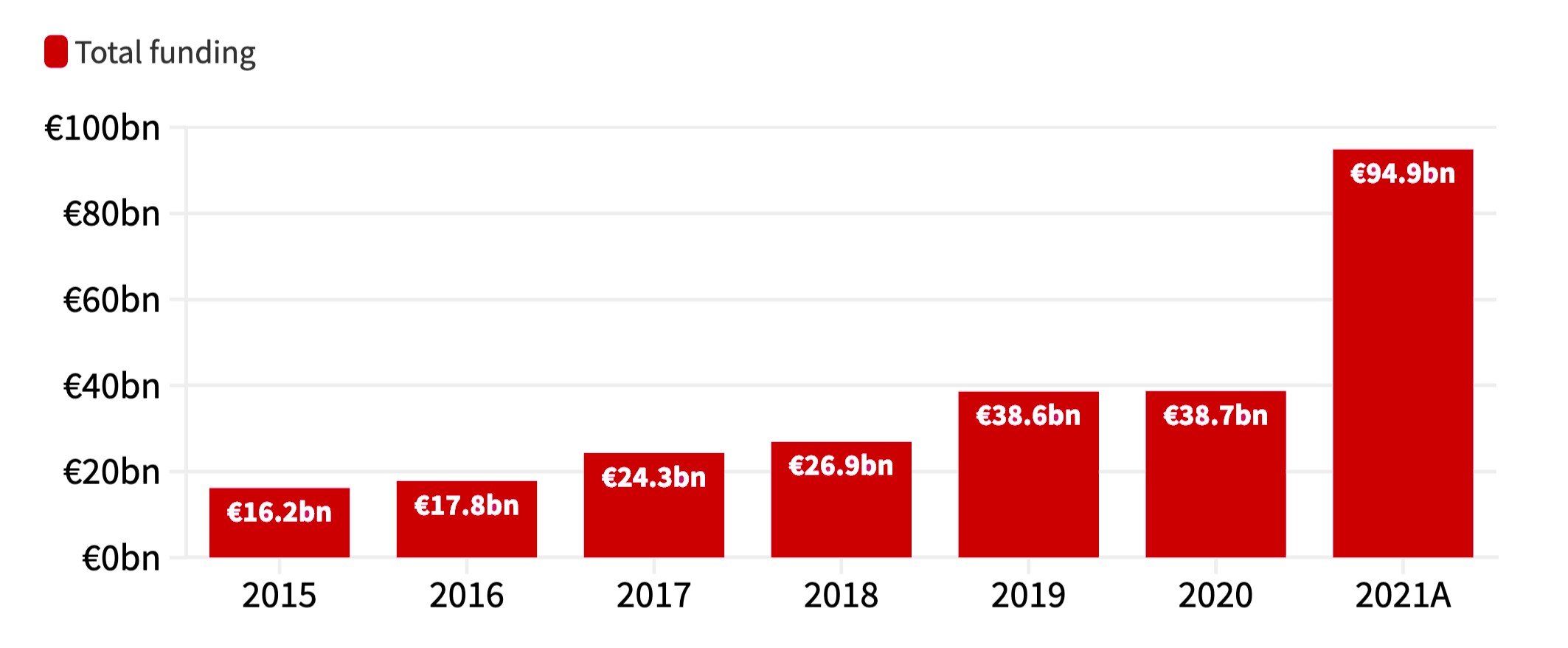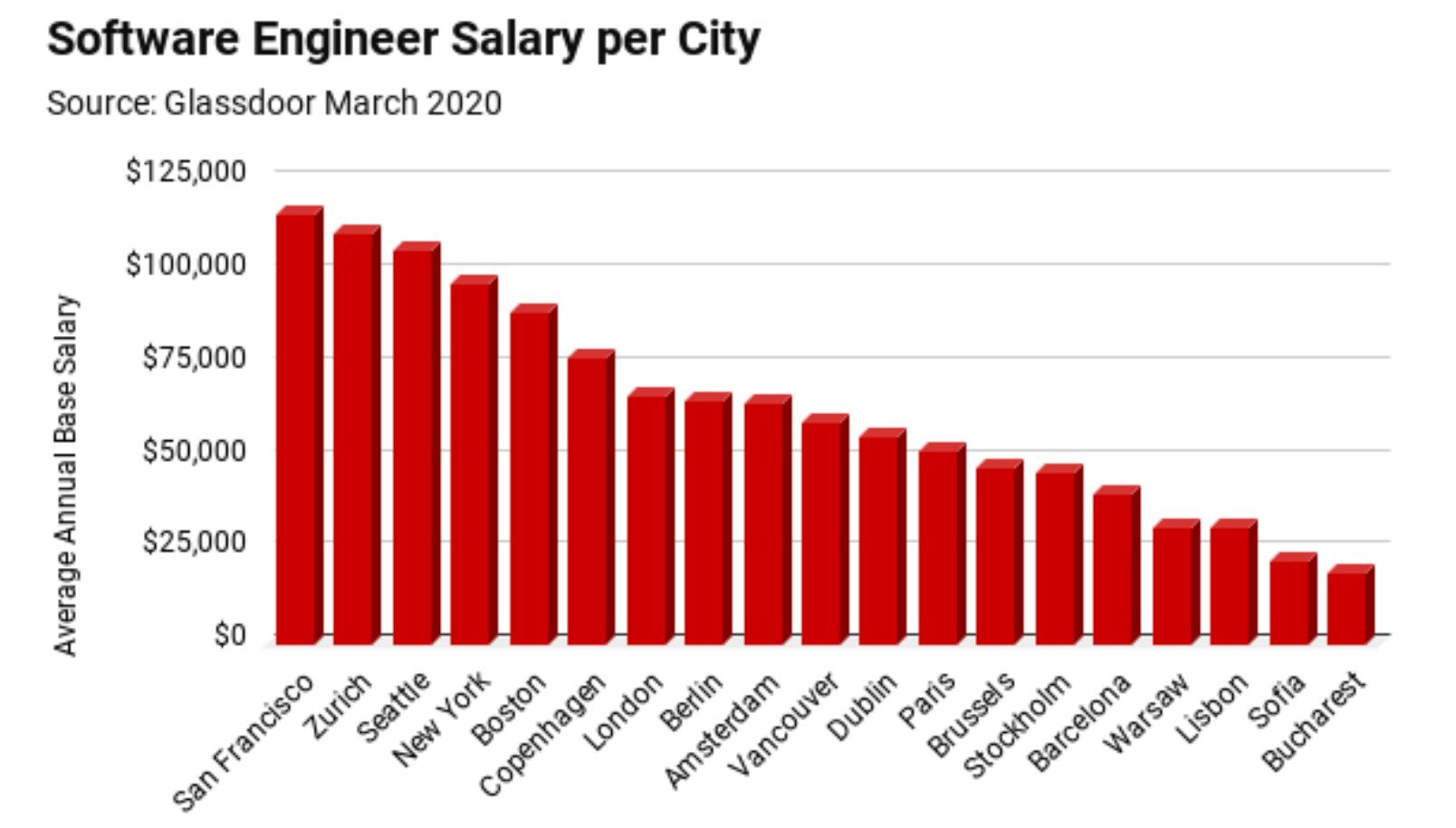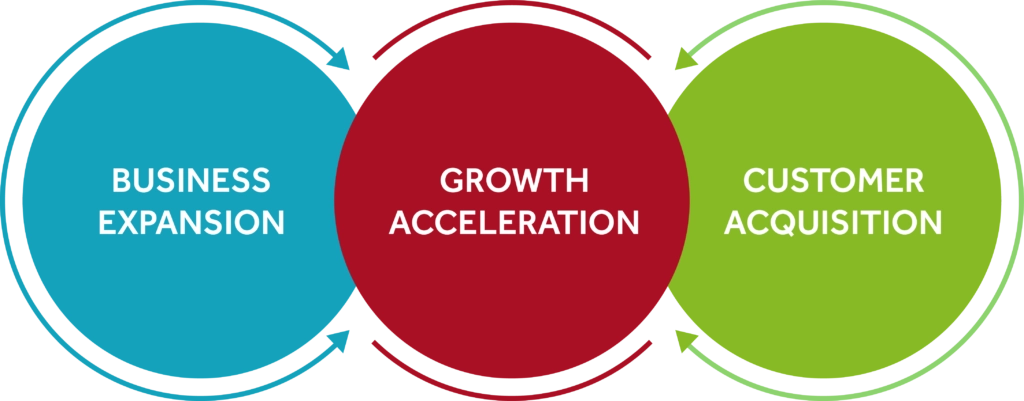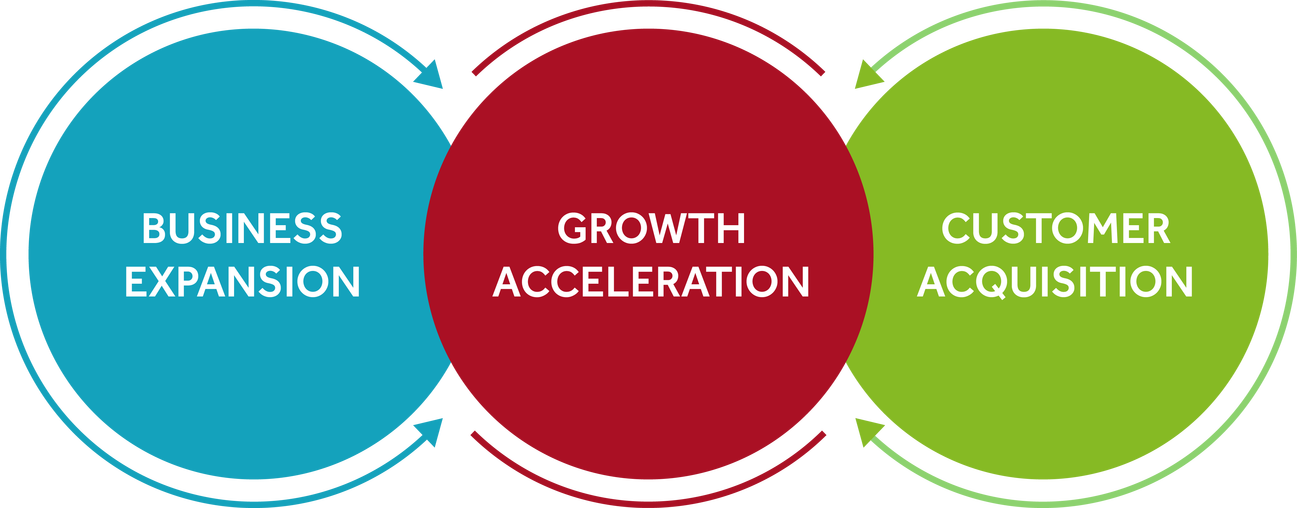Investment in Europe is booming. There are now over 140,000 startups in Europe, the recipients of about €47bn-worth of VC investment in the first half of 2021 alone. That’s more than the whole of 2020, with six months to go.
Estimates show Europe will hit €95bn in VC investment by the end of the year, a year-on-year growth rate of 143% — the highest of any major ecosystem in at least the past five years, besting North America (98%) and Asia (47%).

VC INVESTMENT IN EUROPEAN STARTUPS
Source: Sifted
The primary beneficiaries are the Fintech sector, which raised €12.3bn so far in 2021, the SaaS (€9.7bn) and the food industry (€4.9bn).
But what exactly is it that makes a startup ecosystem worth investing in? A friendly business atmosphere, government support and high standards of living? Sure. What about a large pool of English speaking highly qualified tech workers, plenty of sunshine, safety, and one of the most affordable costs of living in Europe? You bet.
With so many dynamic national startup ecosystems, Europe offers plenty of opportunities for setting up a business or expanding your operations. In 2020, the World Bank ranked eight European countries in its top-20 list of “Ease of doing business ranking” so there is plenty to choose from. These are some of the best countries in Europe for startups.
The UK
The UK, a leading trading power and financial centre, is the second-largest economy in Europe after Germany. Services, particularly banking, insurance, and business services, are key drivers of British GDP growth.
Despite Brexit, in 2020, the UK maintained its standing in the top-10 of best places in the world to do business. As a culturally similar nation to the United States with one of the lowest corporate tax rates in the G20, the United Kingdom is accommodating to startups.
As well as an array of world-leading universities, the UK has a highly developed startup ecosystem. The country also boasts some of the world’s largest airports, deep seaports and rail links to the rest of Europe.
London, in particular, is an exceptional place to start or expand a startup. The third-largest tech hub in the world and the leading startup hub in Europe, London has a vibrant community and a high concentration of capital and international talent. There is no shortage of accelerators and tech events, or government support, making it one of the fastest-growing startup ecosystems in the world.
Being a part of this vibrant atmosphere comes with a price, though. In London, the average salary of a software engineer is just below $75.000, making it one of the most expensive places in the world to build a tech team.

Why pick London for your startup? Despite the impact of Brexit, the UK remains a popular option for businesses expanding to Europe. London still holds substantial prestige for a range of business types and is a desirable place to live and work. It also has a well-developed startup ecosystem, with the highest level of startup funding anywhere in Europe, and a range of resources and support networks.
The downside: Brexit has upended these benefits in many respects. Talent will be somewhat harder to come by with the end of free movement from the EU, at least in the short term. And the UK remains one of the most expensive places in the world to hire a software developer and set up a tech team.
The bottom line: The UK remains a strong candidate for a move to Europe, but it may be best to see how Brexit pans out.
Germany
Every year, over 2 million new businesses are registered in Germany, in an array of fields. Companies from the information and communications technology industry make up the largest share of the startup sector with just under 32%, followed by consumer goods (11%), medical and healthcare products (9%) and the logistics and automotive industry with 6%.
Berlin, in particular, is home to one of the great success stories of the German economy for its ability to tap into this globalized community of nomadic innovators. The nation’s capital has become a haven for innovative software companies, web designers, and marketers, overtaking Paris as the 2nd biggest startup hub in Europe. Companies like Zalando, SoundCloud, Freighthub and Penta are representatives of the German success in this field.
But Berlin is not alone in embracing change. Munich's high-tech economy has embraced AI and new manufacturing techniques, while Frankfurt attracts finance entrepreneurs in huge numbers.
At the same time, it's become easier to start a German business. The government has simplified red tape, changed employment laws to accommodate flexible working, and introduced subsidies for young startup owners.
Why pick Germany to start or expand a startup? Germany offers founders a large consumer market, strategic position in Europe, skilled workforce, strong government, legal system and infrastructure.
The downside: Despite government efforts, Germany is still listed in 125th place in the World Bank’s ranking for starting a business, and tech salaries are among the highest in the old continent, not far from the UK’s. Learning the language and fitting into the local culture is also vital when planning how to set up a business in Germany as a foreigner.
The bottom line: With access to one of the largest consumer markets in Europe, founders will face a tenacious bureaucracy and a high cost of labour.
Denmark
Denmark is ranked as the best country in the world to make business investments for non-European investors, with simple regulations and an ideal position at the heart of Europe.
This modern market economy is home to some of the world’s leading firms in pharmaceutics, maritime shipping, renewable energy, and high-tech agriculture.
Aside from being easy to enter by foreign investors, Denmark offers plenty of multicultural professionals, most of whom speak English. As a result of the government's push for flexible labor laws, regulation is now more in tune with the demands of both modern companies and workers.
Copenhagen is also the most active Nordic startup ecosystem by the number of deals, with a highly engaged network of business angels. These positive developments follow the success of Denmark’s startups such as Zendesk, Trustpilot or Too Good to Go.
Why pick Denmark: A welcoming business environment, a high standard of living, a wide talent pool, simple regulations and a strategic geographic position invite businesses to star grow, and expand.
The downside: Denmark’s ageing population and high cost of living can put some founders off. Copenhagen, Denmark’s capital, hasn’t been growing as much as some of the other startup ecosystems which were close in startup numbers and funding activity.
The bottom line: Denmark’s legendary high standard of living, world-class talent pool and flexible labour laws come with a hefty price tag. Even with its cosmopolitan environment, the country does not attract foreign talent as much as other areas in the South of Europe.

Estonia
EU-Startups.com ranked Estonia among three of the best European countries to set up a startup. In terms of entrepreneurial employee activity and competitiveness, Estonia ranks first in Europe and third in the number of startups per capita. Hundreds of Estonian companies are ready to follow the lead of Skype, Pipedrive, TransferWise and Bolt and conquer the world.
Estonia also boasts a very flexible corporate tax framework, and no corporate income tax on profits, interest or dividends. This means that the tax system is suitable for companies that are planning rapid international growth: founders can spend the funds they would otherwise pay as taxes on innovating.
Aside from a friendly tax program, Estonia’s main claim to fame in the European ecosystem is its e-Residency program, the first of its kind in the world. It enables digital entrepreneurs to start and manage an EU-based company online.
Why pick Estonia to start or expand a startup: Estonia is an attractive destination for startups because of its powerful educational system and highly digitised procedures. Getting an entrepreneurial visa is very easy, as well as hiring skilled talent for tech and marketing positions at a relatively low cost.
The downside: As a small country, Estonia is hardly suitable for labour-intensive ventures or businesses looking to scale within their domestic market.
The bottom line: World-class human capital, unique digital capabilities, a competitive business environment with an advantageous tax system single out Estonia as a smart location for businesses with global ambitions. However, a small internal market might hinder a company’s growth ambitions. A great place for early-stage, digital nomads and solopreneurs.
Iberia (Portugal and Spain)
Iberian startups have raised more in the first six months of 2021, than in any other full-year period. Iberia now has 10 unicorns, with 5 of them having originated in Portugal.
Portugal ranks above the OECD average in housing, work-life balance, personal security and air quality, which naturally attracts talent. The major cities of Porto and Lisbon both have thriving student and expat populations which have proved to be great sources of talent. The country is also well-connected to the rest of Europe with a range of major ports and airports. Lisbon is now home to a variety of startup spaces and a new tech visa opened for application early in 2019.
Spain has long served as a magnet for foreign investors looking to set up a business. One of the primary reasons for this is that the Spanish government actively supports foreign investment opportunities with several schemes like the Spain Golden Visa. Just recently, the Spanish government announced a reduction of corporate tax on 'startups' from 25% to 15% and the creation of a new visa for digital nomads. With foreign investors’ confidence raising, Spain stepped into the role of second-largest recipient of Foreign Direct Investments (FDI) and the third-largest investor in the European Union.
But there’s another reason the Iberian Peninsula ecosystem is making waves, and not just on the sunny beaches where founders can relax. Looking at the total distribution of deals raised by founding teams since 2016, countries from Southern Europe such as Portugal and Spain are performing better in terms of gender diversity compared to other countries in Northern Europe, such as Denmark and the Netherlands.
Why pick Iberia to start or expand a startup: High standard of living at an affordable price, a friendly and inclusive population, government support for startups and a large, English speaking, skilled talent pool.
The downside: Although similar, the cultural backdrop of Portugal and Spain has some differences and needs to be taken into consideration. Language, in particular, could become a barrier, with Portugal leading the way when it comes to doing business in English.
The bottom line: With a business-friendly environment, a booming startup ecosystem and an unmatched quality of life, both Portugal and Spain are world-class locations to build or expand a startup.
The EU is the second-largest economy in the world and the largest trading block in the world and the largest trading block. Starting a company in Europe automatically gives startups access to one of the world’s biggest business hubs with a sophisticated infrastructure, strong legal protections, and a skilled workforce. Europe remains one of the most attractive options for international investment and business formation.
If you are considering expanding operations to Europe, GPG can help you through the entire process.


